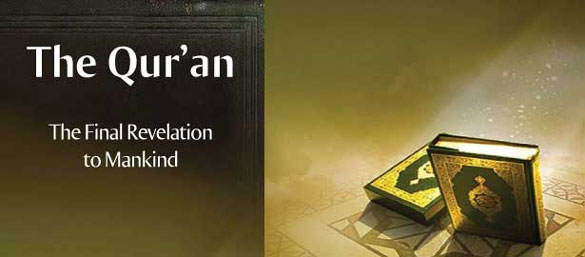
(On International Day of Remembrance of Victims of Slavery)
By S. Arshad, New Age Islam
25 March 2021
The tradition of slavery and slave trade dates back to ancient ages prevalent almost all over the world. We find detailed accounts of slave trade in African, Arab and Asian countries in the Middle Ages. Slaves were employed in mines, plantations and armies. Female slaves were used as sex slaves and concubines. These slaves led a very miserable life and were treated like animals. They had no human rights and were totally at the mercy of their masters. In wars, they were treated like war booty. Keeping slaves was a status symbol in the society. Selling and buying slaves was a lucrative trade in the Middle Ages.

However, with the advent of Islam, the outlook of the society towards slaves gradually changed. The Holy Quran discouraged slavery and encouraged freeing of slaves, good treatment of them and their rehabilitation. Slavery was so deeply entrenched in the social, economic and political fabric of the Arab society that it would not be wise to abolish it overnight. Not only with slavery, Quran takes the approach of gradual reform of society in all other spheres. So instead of ordaining the abolition of slavery at once, it linked freeing of slaves with expiation of sins. The Quran also told Muslims to treat slaves like their family members, to arrange their marriage when they grow up, to nurture good values among them and asks Muslims not to force them in prostitution. The Quran asks Muslims to marry their slave girls if they liked them. Quran also asks Muslims to free their slaves if they want to be freed. It also encourages Muslims to free slaves and makes it a virtue to be rewarded by Allah.
"And if any of your slaves asks for a deed in writing ( for being freed) give them such a deed if you know any good in them,"(Nur:33)
"If someone kills a person (by mistake), he should free a believing slave and pay compensation to the deceased's family".( Al Nisa:92)
"But those who divorce their wives by Zihar, then wish to go back in the words they uttered, they should free a slave before they touch each orher."(Al Mujadilah:3)
Quran also encourages freeing slaves by making a virtue to be rewarded "Freeing a bondman"(Al Balad:13)
For expiating deliberate oaths also the Quran asks the Muslims to free a slave in Surah Al Maida:80)
The above quoted verses show that the Quran brought about a change in the way the Arab society looked at male and female slaves.
There are some hadiths as well that preach good treatment of male and female slaves Here is a hadith:
"Narrated Abu Musa al Ash'ary:
The Prophet pbuh said,"He who has a slave girl and teaches her good manners and improves her education and then manummits her and marries her will get a double reward and any slave who observes Allah's right and his master's right will get a double reward."(Sahih Bukhari:3:46:724)
These teachings had a great impact on the way of thinking of other religious societies in other continents. Though it is also true that even after the advent of Islam, slave trade and the tradition of keeping slaves continued in Islamic societies because of some conservative Islamic scholars and exegetes who continued to justify slavery with the help of the same Quranic verses that discouraged slavery. In their view, the very presence of the verses preaching good treatment of slaves justified the practice of keeping slaves. Later day Muslim kings continued to keep the tradition alive by taking the people of conquered lands as slaves.
The Ottoman Caliphate practiced slavery till 1924. Turkey abolished it in 1924 when Ottoman Caliphate was abolished.
It took Muslim countries about one thousand years to finally abolish slavery in the 20th century following the US and other western countries that abolished slavery in the 19th century. Iran abolished it in 1929 while Oman abolished it in 1970. Saudi Arabia and Yemen abolished slavery in 1962. The UAE abolisgmhed it in 1963.
However, it is unfortunate that though most of the Islamic countries have abolished slavery, some of the prominent Islamic clerics still support the practice of slavery and criticise those who consider it an inhuman practice. Contradicting the Cairo Declaration of Human Rights made in 1990 declaring that no one has the right to enslave another human being , the prominent Saudi cleric Saleh al Fowzan said in 2003 that slavery was a part of Islam and a part of jihad and those who were opposed to it were ignorant and not scholars. He even called such persons infidels.
Renowned and revered Pakistani Islamic scholar Late Dr. Israr Ahmad also held the view that slavery was supported by Islam and that female slaves were like inheritance, passed on from the father to the son. Due to the views of pro-slavery clerics the practice of slavery still exists in some conservative Islamic society. The views of these ulema have influenced terrorist organisations like the ISIS that believe in keeping, selling and buying sex slaves.
Nevertheless, the majority of Islamic countries have abolished slavery and keeping male or female slaves is considered inhuman by modern Muslims as much as by the rest of humanity.
New Age Islam, Islam Online, Islamic Website, African Muslim News, Arab World News, South Asia News, Indian Muslim News, World Muslim News, Women in Islam, Islamic Feminism, Arab Women, Women In Arab, Islamophobia in America, Muslim Women in West, Islam Women and Feminism

No comments:
Post a Comment